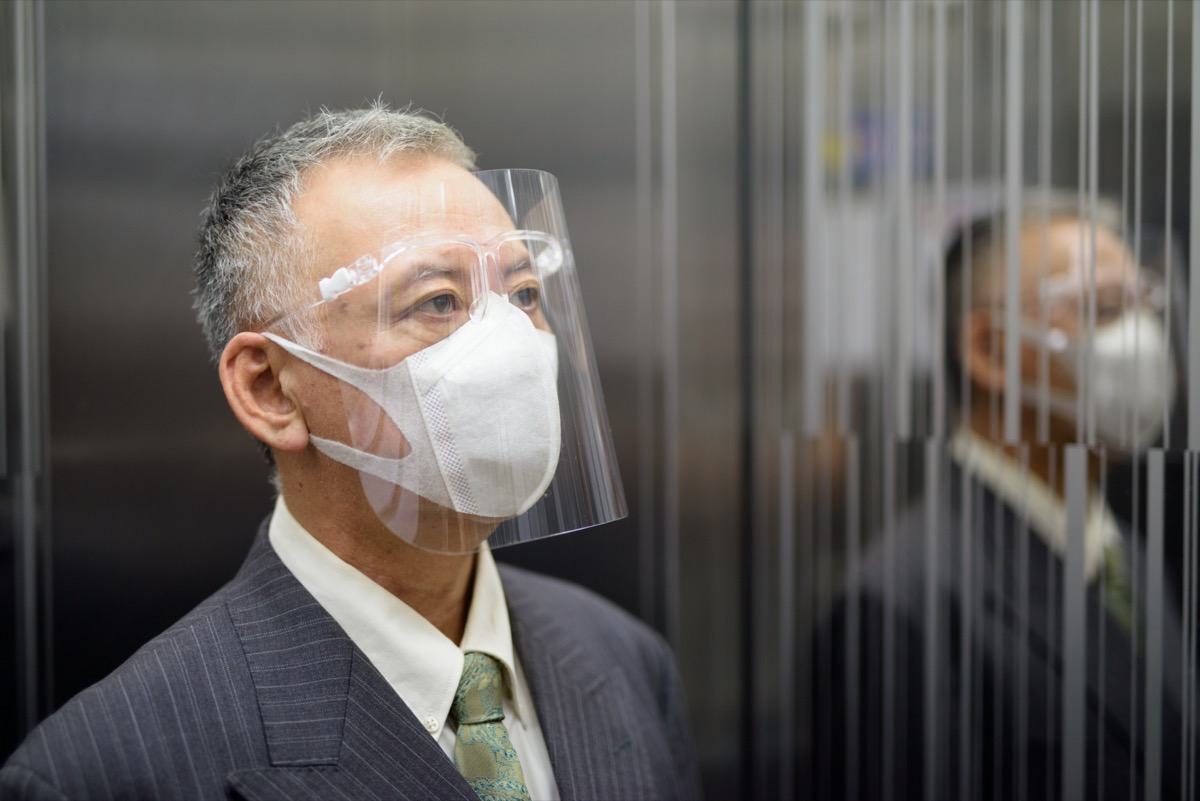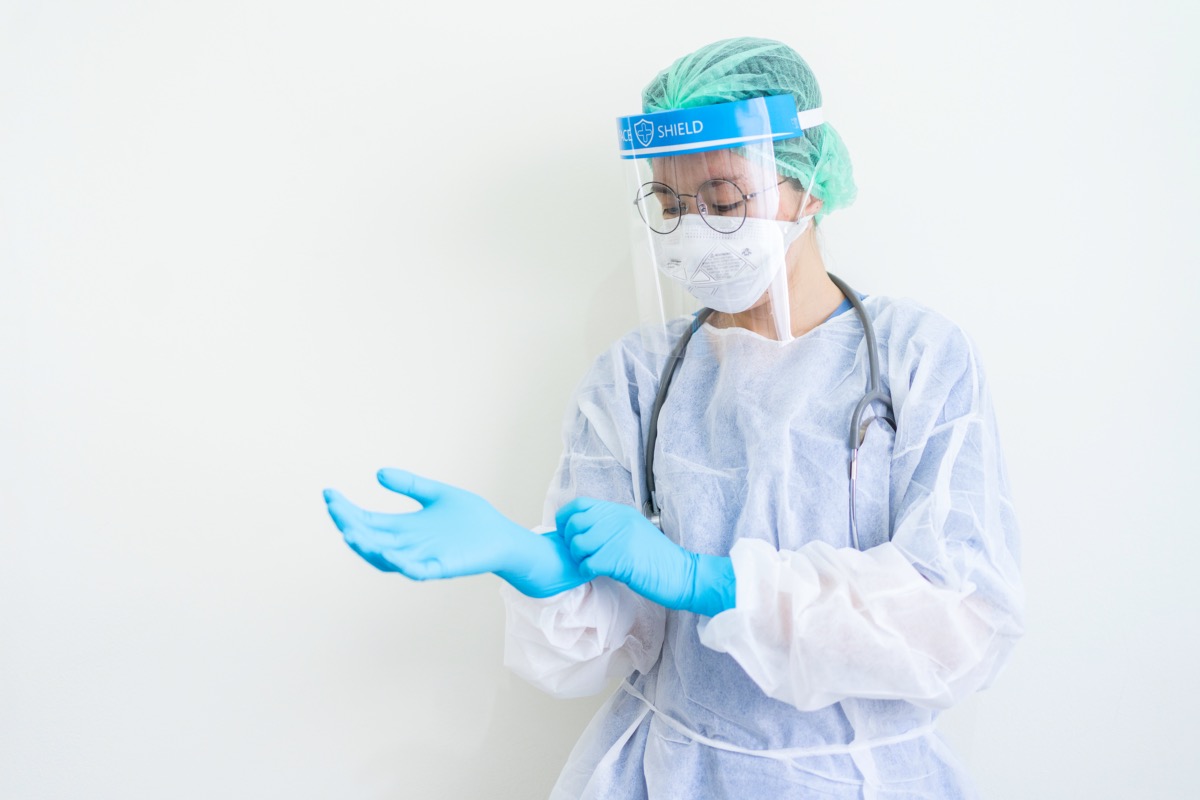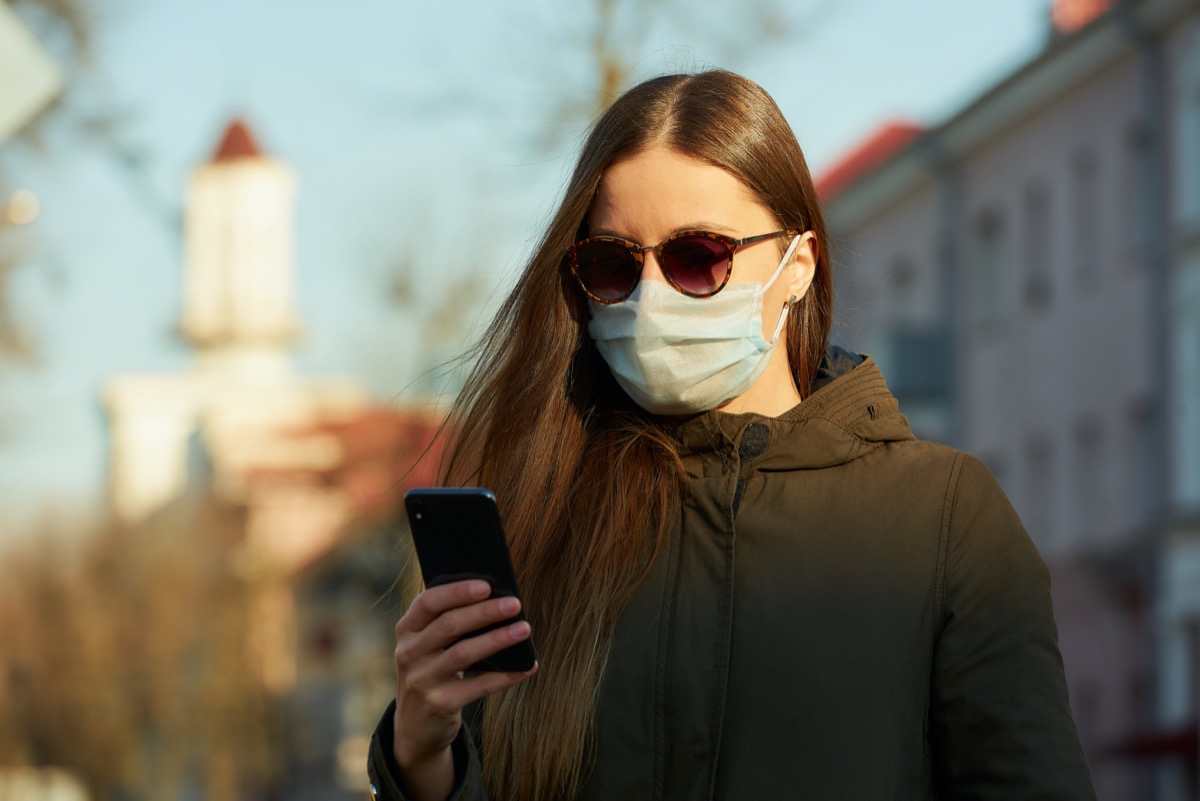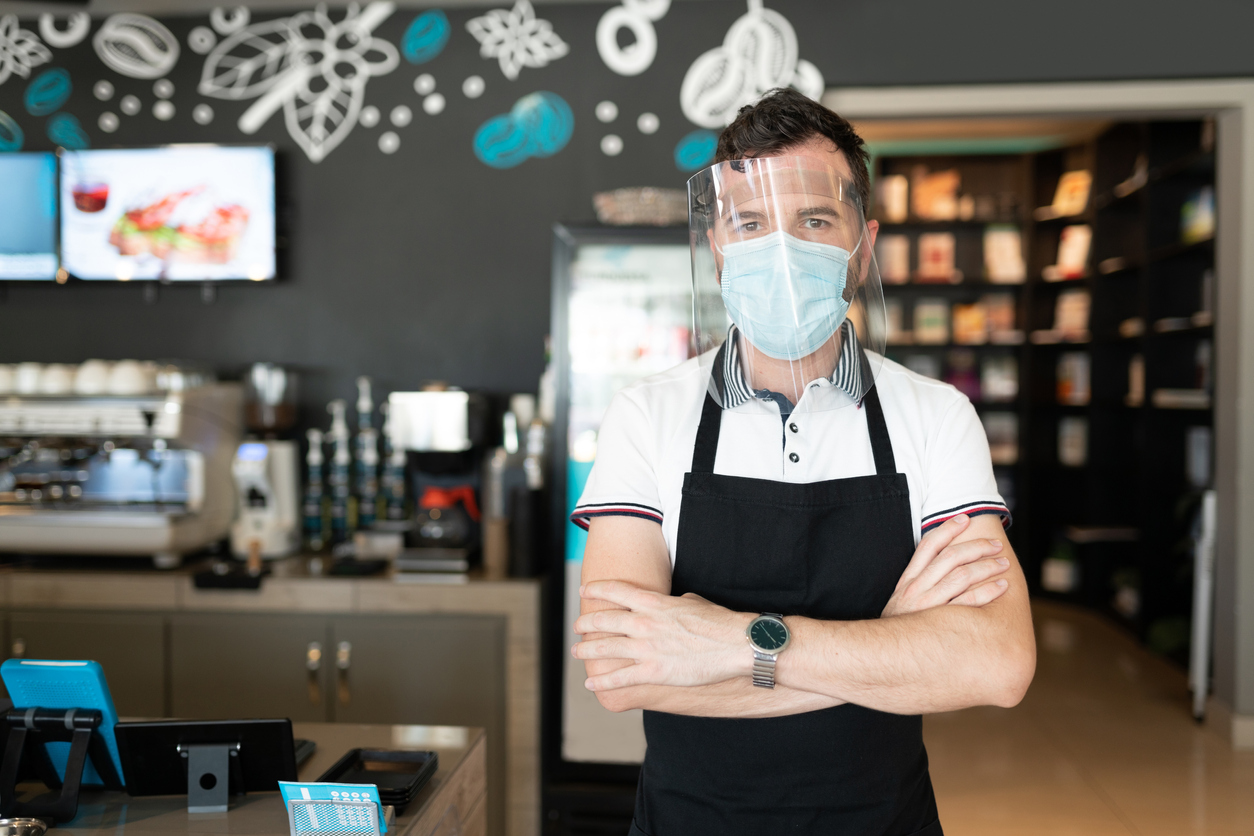The scientific community widely agrees that wearing a mask and avoiding crowds is absolutely vital to avoiding the novel coronavirus. But according to Peter Collignon, PhD, an infectious diseases physician and professor at the Australian National University, the attention we put on social distancing and wearing face masks should also be placed on using eye protection in many situations, The Guardian reports. Collignon explains that there was an unnecessary amount of focus put on sanitizing surfaces during the early days of the pandemic, and we’re much more likely to get the virus from particles in the air. “They’re breathing them in and it’s getting into their nose and eyes and that is the major risk factor,” he said. To make his case, Collignon cited a study published in the Journal of the American Medical Association in August. Researchers found that 19 percent of healthcare workers wearing three-layered surgical masks, surgical gloves, shoe covers, and using hand sanitizer still became infected with COVID. But when face shields were added to the workers’ protective measures, the number of infections dropped to zero. Collignon told The Guardian that the results show how focusing on other protective measures can have a big effect, saying: “I think we’ve underappreciated how important the eyes are and overemphasized surfaces.“ae0fcc31ae342fd3a1346ebb1f342fcb In addition, a June 2020 meta-analysis published in the journal The Lancet looked at 172 studies from 16 countries and six continents and found that the use of eye protection, such as goggles, visors, and face shields, is associated with “less infection.” The Lancet study’s lead author, Derek Chu, MD, told ABC News, “Goggles, face shields, or even large eye glasses may be important in preventing droplet spread through the eyes, as well as self inoculation via the hands.” And for more on how not to protect yourself from COVID, check out If You’re Layering These Masks, the CDC Says to Stop Immediately. Other research has found that even covering your eyes with everyday glasses could have a big effect. In a study published on medRxiv on Feb. 13, which has not yet been peer-reviewed, researchers examined how glasses could protect someone from the novel coronavirus by observing 304 COVID patients between the ages of 10 and 80 at a hospital in northern India, with 19 percent of the patients reporting that they wore glasses most of the time. After comparing results to the estimated 40 percent of the general population in India that wears glasses, the researchers concluded that the risk of catching COVID was two to three times lower for those who wear glasses than those who do not. Notably, the researchers point out that wearing glasses likely creates a barrier that prevents people from touching their eyes too often. And for more COVID news delivered right to your inbox, sign up for our daily newsletter. During an Instagram Live chat with ABC News in July, White House COVID adviser Anthony Fauci, MD, also agreed that eye protection could help prevent you from contracting COVID. “Theoretically, you really should protect all of the mucosal surfaces,” Fauci noted, referring to the mouth, nose, and eyes. He said that protecting your eyes from the virus is “not universally recommended, but if you really want to be complete, you should probably use it if you can.” While the U.S. Centers for Disease Control and Prevention’s (CDC) current guidelines state that it “does not recommend using face shields or goggles as a substitute for masks,” they note that face shields and goggles can be used in addition to well-fitted face coverings with three layers. And for more mask advice that you may not know, check out If You See This on Your Mask, the FDA Says Toss It Immediately.



